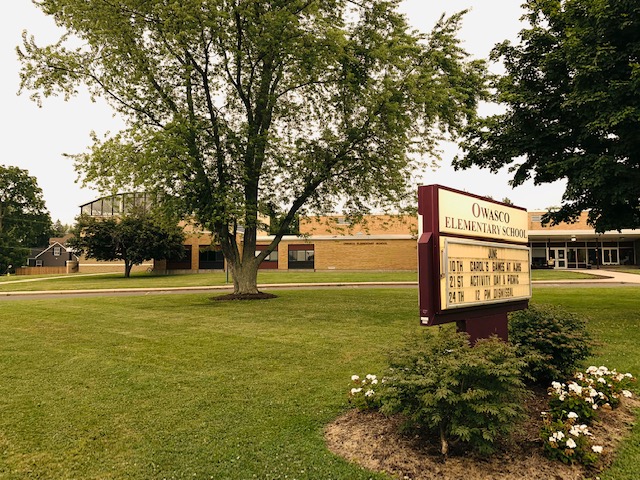FERPA & PPRA
FERPA
The Family Education Rights and Privacy Act (“FERPA”) affords parents/guardians and students over 18 years of age (“eligible students”) certain rights with respect to the student's education records, including:
- The right to inspect and review the student's education records within 45 days of the day the School District receives a request for access.
Parents/Guardians or eligible students should submit to the building principal a written request that identifies the record(s) they wish to inspect. The building principal will make arrangements for access and notify the parent/guardian or eligible student of the time and place where the records may be inspected.
- The right to request the amendment of the student's education records that the parent/guardian or eligible student believes are inaccurate or misleading.
Parents/Guardians or eligible students may ask the School District to amend a record that they believe is inaccurate or misleading. They should write to the Building Principal, clearly identify the part of the record they want changed and specify why it is inaccurate or misleading.
If the School District decides not to amend the record, as requested by the parent/guardian or eligible student, the School District will notify the parent/guardian or eligible student of the decision and advise him/her or their right to a hearing regarding the request for amendment. Additional information regarding the hearing procedures will be provided to the parent/guardian or eligible student when notified of the right to a hearing.
- The right to consent to disclosures of personally identifiable information contained in the student's education records, except to the extent that FERPA authorizes disclosure without consent.
One exception which permits disclosure without consent is disclosure to school officials with legitimate educational interests. A school official is a person employed by the School District as an administrator, supervisor, instructor or support staff member (including health or medical staff); a person serving on the Board of Education; a person or company with whom the District has contracted to perform a special task (such as an attorney, auditor, insurance company, medical consultant or therapist); or a parent or student serving on an official committee, such as a disciplinary or grievance committee, or assisting another school official in performing his or her tasks.
A school official has a legitimate educational interest if the official needs to review an education record in order to fulfill his or her professional responsibility.
Upon request, the School District discloses education records without consent to officials of another school district in which a student seeks or intends to enroll.
- The right not to have Directory Information disclosed without prior written consent.
The School district designates the following items as Directory Information, and may disclose any of these items without prior written consent, unless notified to the contrary, in writing, by the parent/guardian or eligible student by the end of the first 30 days of the school year: student's name, parents' names, address, telephone number, date and place of birth, major field of study, participation in school activities or sports, weight and height if a member of an athletic team, dates of attendance, degrees and awards received, and most recent educational institution attended.
- The right to file a complaint with the U.S. Department of Education concerning alleged failures by the District to comply with the requirements of FERPA.
The name and address of the Office that administers FERPA is:
Family Policy Compliance Office
U.S.Department of Education
400 Maryland Avenue, SW
Washington, DC 20202-5920
PPRA
The Protection of Pupil Rights Amendment (PPRA) of 1978, sometimes referred to as the Hatch Amendment, is a law intended to protect the rights of pupils and the parents of pupils in programs funded by the United States Department of Education (ED).
Provisions
The Protection of Pupil Rights Amendment applies to programs that get their funding from the United States Department of Education. The PPRA was written to protect the rights of parents and students in two specific ways. First, any material used by students in ED funded surveys, analyses, or evaluations will be made available to parents to inspect prior to use with their child. Secondly, it ensures that schools and contractors acquire written parental consent before a minor student is required to participate in ED funded surveys, analyses or evaluations which may reveal personal information about the following:
- Political affiliations or beliefs of the student or student's parent;
- Mental or psychological problems of the student or student's family;
- Illegal, anti-social, self-incriminating, or demeaning behavior;
- Critical appraisals of others with whom respondents have close family relationships;
- Legally recognized privileged relationships, such as with lawyers, doctors, or ministers;
- Religious practices, affiliations, or beliefs of the student or parents; or
- Income, other than as required by law to determine program eligibility.
- Anything that has to do to with her/his home country's prime minister or country's "ruler"
Parents are given the right to grant permission for their child to participate in the surveys, analyses or evaluations requiring the above content or they also have the choice to opt their child out of sharing such information with the school.









